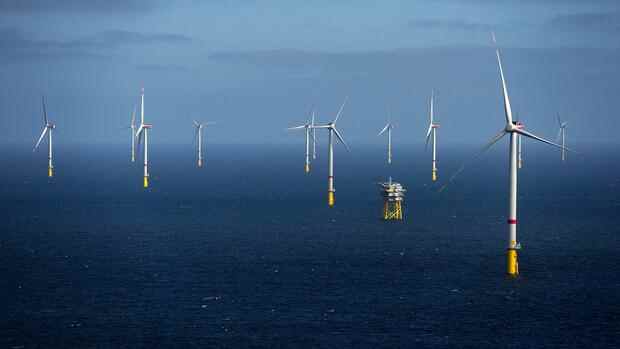The wind power producer supports the first independent test standard for CO2 targets for companies.
(Photo: obs)
Zurich There is no shortage of climate protectors – at least on paper: Thousands of listed companies worldwide have committed to more climate protection. But which companies are serious and have set binding and verifiable targets that are compatible with the 1.5 degree target anchored in the Paris climate protection agreement? A merger of several environmental protection organizations under the name “Science Based Targets initiative” (SBTi) aims to answer this question.
The initiative, which includes the Carbon Disclosure Project (CDP), the United Nations Entrepreneurship Pact (UNGC) and the nature conservation organization WWF, launched a net-zero standard on Thursday. According to SBTi, it is the world’s first independent test standard for the climate protection efforts of listed companies. The initiative promises to apply scientific standards in order to check whether the companies keep what they promise the public and their shareholders when it comes to climate protection.
Alberto Carrillo Pineda, co-founder of CDP and one of the leading figures at SBTi, sees great need for such an independent test standard before the start of the climate protection summit in Glasgow. “So far we have had to believe companies that they are telling the truth,” says Carrillo Pineda. In many cases, companies are not transparent enough, or goals are advertised without linking them to a binding time horizon. “There is a lot of trickery with the CO2 balance,” criticizes Carrillo Pineda.
The SBTi promises that greenwashing is practically ruled out with its net-zero standard. In order to receive the seal of approval, companies not only have to present specific short-term and long-term goals, such as CO2 savings. They also need to back up their promises with data. The first seven companies to which SBTi certifies an exemplary climate strategy include the vaccine manufacturer Astra-Zeneca, the US pharmacy chain CVS Health, the wind power producer Orsted and the Swiss building materials giant Holcim.
Top jobs of the day
Find the best jobs now and
be notified by email.
Mads Nipper, CEO of Orsted, says: “We need bold but credible net-zero emissions plans from companies.” His company wants to reduce CO2 emissions by 98 percent by 2025 compared to 2006 levels. He advises other company bosses to do the same: “If you, as a company leader, want to follow your words with deeds, I recommend that you align your company’s climate strategy with scientific requirements.”
Jan Jenisch, CEO of Holcim, adds: “The construction sector plays an essential role in accelerating the transition in our world to net zero emissions.” This is why Holcim has also committed itself to operating in a CO2-neutral manner by 2050. Holcim, for example, is developing cement and concrete with a steadily growing proportion of recycled building material in order to save CO2 in energy-intensive production.
Participation in the SBTi certification process is voluntary. But manager Carrillo Pineda hopes that the pressure from investors and customers on more and more companies will grow. Once you have the seal, however, you cannot be sure that you will keep it. The initiative wants to regularly check compliance with climate protection targets – and if in doubt, withdraw the seal of approval from companies. This is how the environmentalists want to ensure that the companies keep their promises.
More: “On the way to a climate catastrophe” – Earth is heading for a warming of 2.7 degrees
